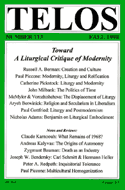In “The Crisis of Capitalist Democracy,” from Telos 152 (Fall 2010), Adrian Pabst “charts the rise of capitalist democracy” in its conceptual and historical origin, and then in its empirical and contemporary manifestation, before presenting an alternative. This alternative seeks the re-emergence of an autonomous realm of “civil society” that is not subsumed by either the free market or the liberal democratic state. Pabst begins by sketching the collusion of capitalism and democracy and their subsequent fusing into modern “market-states.” Representative democracy, in the same way that free-market capitalism creates abstract, virtual value from local and material processes, “tends toward the formalization and abstraction of politics from the people it purports to represent.” The collusion, therefore, of democratic states with free-market capitalism has led to a third-way combination of “some of the worst elements of the left and the right.”
|
|
||||
|
Telos Press Publishing · PO Box 811 · Candor, NY 13743 · Phone: 212-228-6479 Privacy Policy · Data Protection Copyright © 2024 Telos Press Publishing · All Rights Reserved |
||||
 When Karl Marx described the commodity, he invoked the language of faith. For him, the commodity remained “a very strange thing, abounding in metaphysical subtleties and theological niceties.”[1] Marx, a dedicated secular economist, hesitated to pinpoint the exact power of the commodity. He could not fully understand it without recourse to a mythology he abhorred, one that far predated his radical recasting of accepted historical narratives. Here religion colors economics: the logic of exchange resembles a curious mysticism.
When Karl Marx described the commodity, he invoked the language of faith. For him, the commodity remained “a very strange thing, abounding in metaphysical subtleties and theological niceties.”[1] Marx, a dedicated secular economist, hesitated to pinpoint the exact power of the commodity. He could not fully understand it without recourse to a mythology he abhorred, one that far predated his radical recasting of accepted historical narratives. Here religion colors economics: the logic of exchange resembles a curious mysticism. 






